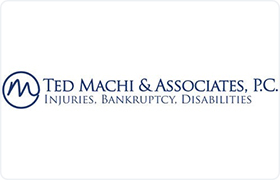Fort Worth Bankruptcy & Debt Lawyer, Texas, page 6
Sponsored Law Firm
-
 x
x

Click For More Info:
-
Machi & Associates, P.C.
1521 North Cooper Street Suite 550 Arlington, TX 76011» view mapAccident & Injury, Bankruptcy, Social Secuirty We Fight So You Don't Have To
Our professional team of attorneys and staff provide the experience and expertise needed to effectively handle your case.
800-804-0771
Pamela L. Wilder
Adoption, Alimony & Spousal Support, Child Support, Collection
Status: In Good Standing
FREE CONSULTATION
CONTACTRichard D. Pullman
Commercial Leasing, Corporate, Banking & Finance, Collection
Status: In Good Standing
Shanna Cargill
Consumer Protection, Corporate, Business Organization, Collection
Status: In Good Standing
Steven L. Besly
Corporate, Business Organization, Banking & Finance, Bankruptcy
Status: In Good Standing
Susan Land Finnell
Estate Administration, Estate Planning, Directors & Officers, Bankruptcy
Status: In Good Standing
 Ted Machi Arlington, TX
Ted Machi Arlington, TX Practice AreasExpertise
Practice AreasExpertise
